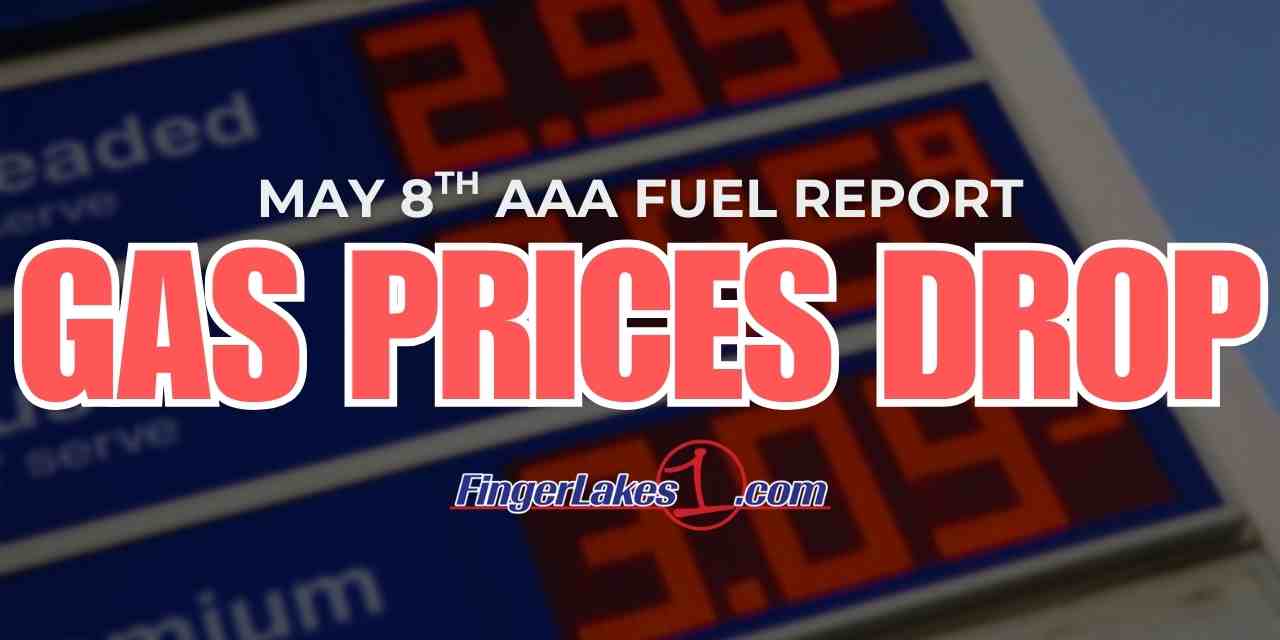
Drivers across the U.S. are seeing welcome relief at the pump as national gas prices continue to fall. According to new data released May 8, the national average price for a gallon of regular gasoline has dropped three cents over the past week to $3.15, nearly 49 cents cheaper than this time last year.
Gas prices decline as supply rises
The Energy Information Administration (EIA) reported that U.S. gasoline demand decreased last week from 9.09 million barrels per day (b/d) to 8.71 million b/d, while gasoline supply ticked up slightly. Despite a slight dip in gasoline production to 9.7 million b/d, overall supplies remain strong, helping to drive prices down.
- Today’s National Average: $3.152
- One Week Ago: $3.186
- One Month Ago: $3.246
- One Year Ago: $3.640
Meanwhile, OPEC+ announced plans to increase oil output again in June, adding to a global surplus that could continue to push crude oil and gas prices lower through the summer months.
Oil market trends
At the close of Wednesday’s trading session, West Texas Intermediate (WTI) crude oil settled at $58.07 per barrel, a drop of $1.02. Crude inventories in the U.S. decreased by 2 million barrels last week, with current levels about 7% below the five-year seasonal average.
Despite lower inventories, the anticipated surge in global oil production is easing market pressures, offering travelers a more affordable summer road trip season.
States with the highest and lowest gas prices
Across the country, drivers are seeing significant regional differences in gas prices:
- Most Expensive States:
- California: $4.82
- Hawaii: $4.49
- Washington: $4.26
- Oregon: $3.90
- Nevada: $3.89
- Least Expensive States:
- Mississippi: $2.64
- Louisiana: $2.70
- Oklahoma: $2.73
- Arkansas: $2.74
- Alabama: $2.75
Travelers can monitor current fuel prices along their routes using tools like the AAA TripTik Travel Planner.
EV charging prices edge upward
While gas prices are easing, the cost of electric vehicle (EV) charging continues to climb slightly. The national average price per kilowatt-hour (kWh) at a public charging station rose by two cents to 36 cents this week.
- Most Expensive States for Public EV Charging:
- Hawaii: 54 cents per kWh
- Alaska: 47 cents
- West Virginia: 47 cents
- Least Expensive States for Public EV Charging:
- Kansas: 22 cents per kWh
- Missouri: 25 cents
- Delaware: 26 cents
What drivers can expect this summer
With gas prices trending downward and oil supply rising, drivers are likely to enjoy lower costs at the pump heading into the peak summer travel season. However, continued shifts in global oil markets and regional supply dynamics could cause local price fluctuations.
Experts recommend planning ahead and using fuel price tracking apps to lock in savings wherever possible.
